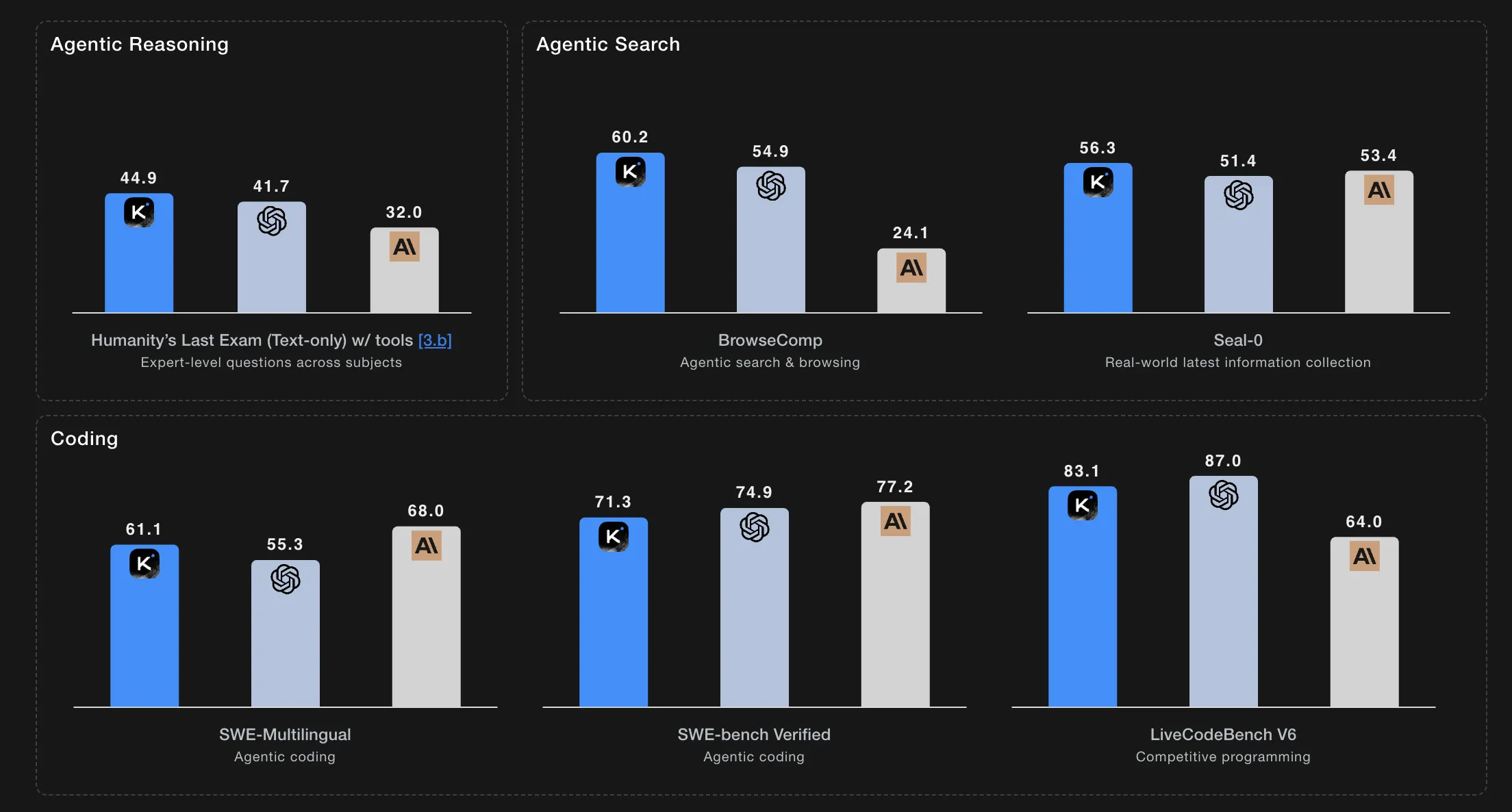Moonshot Unveils Major AI Update Amid China-U.S. Competition
Moonshot, backed by Alibaba, unveils Kimi K2 Thinking AI update, enhancing autonomous capabilities amid China-U.S. AI competition.

Alibaba-Backed Moonshot Unveils Second Major AI Update in Four Months Amid Intensifying China-U.S. AI Competition
Moonshot, a Chinese AI startup backed by Alibaba, has released its second significant update to its artificial intelligence model in just four months, underscoring China's accelerating push in the global AI race. The new iteration, dubbed Kimi K2 Thinking, introduces advanced agentic AI capabilities that reportedly surpass OpenAI’s ChatGPT in autonomous task completion and tool usage, positioning Moonshot as a rising challenger in large language model (LLM) innovation.
Background: Moonshot and the Kimi AI Series
Moonshot AI, a Shanghai-based startup supported by Alibaba Group, first launched its Kimi chatbot series in 2023. The initial versions gained attention for their extraordinarily large context windows—handling up to 128,000 tokens, far beyond many contemporaries. These models quickly evolved into a suite of specialized AI tools focused on coding, research assistance, and autonomous content generation.
In mid-2025, Moonshot released Kimi K2, a trillion-parameter model with 32 billion active parameters, which was open-sourced under a modified MIT license. This model demonstrated state-of-the-art performance on coding benchmarks, indicating a competitive edge in developer-centric AI applications. Subsequent updates enhanced its context window to 256,000 tokens and expanded its multimodal abilities to process and generate text, audio, images, and video from massive datasets.
The Latest Update: Kimi K2 Thinking
Announced on November 6, 2025, Kimi K2 Thinking marks Moonshot’s second major AI release within four months. This version boasts enhanced "agentic" capabilities, meaning it can autonomously select and deploy between 200 and 300 tools to complete complex tasks without human intervention. This level of autonomy is a significant step beyond traditional LLMs that typically require explicit user commands for tool usage.
Kimi K2 Thinking’s ability to autonomously manage numerous tools and generate multi-page websites, editable presentations, and process up to one million rows of data simultaneously positions it as a versatile AI agent for a range of applications, from business intelligence to creative content generation. The integration of Kimi Delta Attention (KDA), an efficient attention mechanism, helps reduce memory usage and speed up generation, especially for large context windows, enhancing performance and scalability.
Industry Context: China’s AI Ambitions and Global Competition
Moonshot’s rapid iteration cycle and technological advancements occur against a backdrop of heightened geopolitical and economic rivalry in AI development between China and the United States. Nvidia CEO Jensen Huang recently urged the U.S. to accelerate its AI efforts to compete with China’s growing capabilities. Meanwhile, some U.S. companies, including Airbnb, have begun endorsing Chinese AI models like Moonshot’s as viable alternatives to OpenAI’s offerings, signaling a shift in the competitive landscape.
Alibaba’s backing of Moonshot exemplifies the Chinese tech giant’s strategic investments in AI startups to compete with Western tech leaders. Moonshot’s open-weight approach and licensing model also aim to foster a developer ecosystem that can drive innovation and adoption domestically and internationally.
Technical Achievements and Future Prospects
- Model Size and Efficiency: Kimi K2 Thinking utilizes a trillion-parameter mixture-of-experts (MoE) design, activating 32 billion parameters dynamically, balancing power and efficiency.
- Multimodal Capabilities: Enhanced to generate text, audio, images, and video, supporting large-scale data input and complex output formats.
- Autonomous Tool Utilization: Automatically selecting hundreds of tools for task completion reduces reliance on human operators, pushing toward more generalized AI agents.
- Open Source Strategy: Despite cutting-edge performance, Moonshot maintains a modified MIT license to encourage broader community engagement and transparency.
Looking ahead, Moonshot aims to further expand Kimi’s agentic capabilities, potentially enabling fully autonomous research agents and enterprise AI assistants capable of managing complex workflows. Its rapid development pace suggests China’s AI ecosystem is maturing quickly, with Alibaba playing a central role as both an investor and technology partner.
Visuals
- Moonshot AI logo and branding images to establish company identity.
- Screenshots or interface images of the Kimi K2 Thinking platform demonstrating its multi-tool agentic interface.
- Diagrams showing Kimi’s Mixture-of-Experts architecture and Kimi Delta Attention (KDA) method to illustrate technical innovation.
- Visual comparisons of context window sizes and multitasking capabilities to highlight advancements over competitors like ChatGPT.
Moonshot’s latest release reflects both the rapid technological advancements and strategic ambitions of China’s AI sector. As the competition with U.S.-based AI developers intensifies, innovations like Kimi K2 Thinking could reshape global AI technology standards and market dynamics in the coming years.


